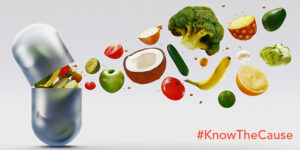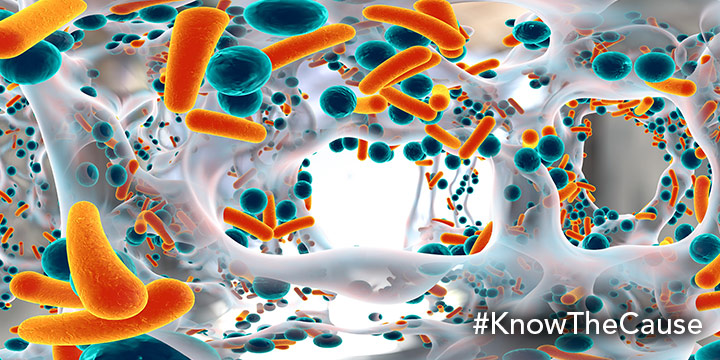

In 2016, I was honored when being asked to speak to a group of physicians about the role of fungus in “refractory” (unaffected by treatment) infections. Physicians are taught little about fungal infections, so I used this opportunity to teach them what medical training had not taught them. Yes, fungal infections cause fevers and elevated white blood cell (WBC) counts, just like bacterial infections. I bring this to your attention, because a new study on sciencedaily.com indirectly highlighted this same issue.
The headline, Microbial Study Reveals Extended Lifespan of Starved Bacteria, addressed the problem of chronic infections and how bacteria resist being killed by antibiotics. This study concludes that many infections are difficult to treat and while I concur, I’ve got to wonder if treating with an antifungal drug might reduce that difficulty significantly. When doctors hear the word “infection,” they think “bacteria.” This simply is not the case. In my 2016 lecture, I provided information on a study that demonstrated that when the bacteria Staphylococcus aureus was incubated in a test tube with the yeast, Candida albicans, the bacteria, a drug of last hope in curing resistant Staphylococcus aureus patients, Vancomycin, was ineffective.
Why is this important? Most physicians disagree with me, but I believe that many and perhaps most infections are “co-infections” being both bacterial and fungal in nature. Physicians most always prescribe antibiotics for infected patients hoping that the offending germ is bacterial. Many are, but more and more, antibiotic resistant infections are being diagnosed. This study likely provides data that every physician should learn. From 2017-2021, the Center For Disease Control (CDC) taught doctors to “think fungus” when the drugs they were prescribing were not working. I doubt that our doctors comprehend the magnitude of fungal infections today, so we, the people, must talk to them when our infections persist, despite antibiotics.
American Society for Microbiology: Commensal Protection of Staphylococcus aureus against Antimicrobials by Candida albicans Biofilm Matrix | mBio (asm.org)
Doug Kaufmann has written many books that cover a full range or health issues. Find out which of his books best suits you by clicking the button below.
Doug Kaufmann developed his diet after years studying the clinical effects of pathogenic fungi on the body. Fungi and yeasts can become parasitic organisms on and inside our body, causing health problems that can be difficult to diagnose. Learn more about the Kaufmann Diet, change your life and know the cause.
We encourage all visitors to this site to take some time and study these technical articles prior to initiating lifestyle changes, including dietary changes and to do so with their physician’s awareness and approval. The articles posted in this link are scientific and with few exceptions are taken from medical journals familiar to healthcare workers.
Looking for help assembling antifungal Kaufmann Diet approved recipes for breakfast, lunch or dinner? We have several videos, books and recipe write ups here on Know the Cause that will help your health journey. The recipes in this section are so good, you’ll feel like you’re indulging. No sacrifice needed! Enjoy.
© 2024 Mediatriton Inc. All Rights Reserved • Website by Skynet Solutions